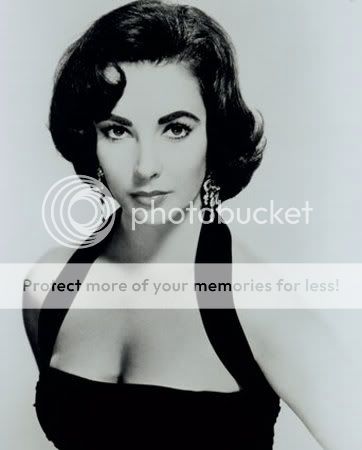The 1960s are popularly held to be a watershed in human history. When the children of the Second World War, freed from the austerity of the last war, and under the shadow of the third, turned away from traditional values of family, law, sex, religion and headed off in a new direction, they began a seismic shift whose aftershocks we still are feeling today. We are over half a century from the 60s which means we live with those who knew the world before then, those who came of age then, and those who have only known the aftermath.
On the other hand, has that much changed? Two books I've just read both claim to detail a marker of the end of one era and the beginning of another. Furious love: Elizabeth Taylor, Richard Burton and the marriage of the century, by Sam Kashner and Nancy Schoenberger, traces that turbulent love story, while Party of the century: The fabulous story of Truman Capote and his Black and White Ball, by Deborah Davis looks at the writer's life through the prism of his party. Tantalisingly, the stories almost cross: Burton and Taylor were invited to the ball, but were filming overseas and were unable to attend.
 Both are stories of excess. The fabulous Burtons, or Dick and Liz as they were known to their distaste, were creatures of excess, of love, of sex, of money, of alcohol, of fighting. Their love seemed to consume them, and their lives together were a tumult. They gave each other strengths that made them both braver people and better actors, but she was the winner of two Oscars while he, nominated for seven, never won one. He was haunted by the stage career he never had, though he denied it. On one bender, he was carried away, crying out "I could have been Lear!" She claimed she was happier being Mrs Burton than Elizabeth Taylor movie star and indeed her acting career became less important to her as she got older. Their fights were legendary, part cathartic, part love-play, part putting on a show for their world-wide audience.
Both are stories of excess. The fabulous Burtons, or Dick and Liz as they were known to their distaste, were creatures of excess, of love, of sex, of money, of alcohol, of fighting. Their love seemed to consume them, and their lives together were a tumult. They gave each other strengths that made them both braver people and better actors, but she was the winner of two Oscars while he, nominated for seven, never won one. He was haunted by the stage career he never had, though he denied it. On one bender, he was carried away, crying out "I could have been Lear!" She claimed she was happier being Mrs Burton than Elizabeth Taylor movie star and indeed her acting career became less important to her as she got older. Their fights were legendary, part cathartic, part love-play, part putting on a show for their world-wide audience.
But the fights became more real, more vicious. Though he tried several times to reform, Burton couldn't be sober and with Taylor at the same time. She too overindulged in food, her weight fluctuating alarmingly, and in alcohol, although she held her booze better than her husband. Their love affair was killing them. And younger actors were coming through with regional British accents, unlike the RP accent Burton spent so much time perfecting, the women with fashionable slender figures that Taylor could never hope to emulate. (And growing older is always professionally harder for an actress.) They separated, divorced, remarried and divorced again. In the end both personal and professional pressures forced

them apart, although they were part of each other's lives until the end. Burton married twice again before dying as a result of alcoholism and other long term health issues at only 58. Taylor, who married 8 times in all, became a movie star without movies. Famously she championed the AIDS cause from the 1980s, inspired she said from giving Burton the courage to admit publicly to his haemophilia but in the 1960s. Furious love is fascinating story, and well told, going well beyond any sort of trashy 'expose'.
Truman Capote's career peaked in 1966 with the publication of In Cold Blood. He had gone from a poor Southern boy to a friend of the rich and famous. He celebrated with a masked Black and White Ball at the Plaza Hotel in November of that year. He planned it to be the party of the century and you could argue he achieved his aim. Davis looks at Capote's life both before and after this party, but the party dominates. Planned to the nth degree and publicised with a touch of genius, it was national news when it happened. The guest list, so revised, polished and altered over months, was a combination of the rich, the famous, the literary, the beautiful and included Capote's friends he had made in Kansas. The party itself was a success although some guests claimed otherwise. Candice Bergen said the party was dull and left early, and in a photo looks spectacularly bored. But that was not the popular perception, and that was all that mattered. But Capote was unable to follow up the spectacular success of In Cold Blood, and the time for palling around with the wives of rich men seemed to have passed. Capote's career was down hill from that time on, and in the end, he was a drunk and a drug addict. He too died young but his flame had died long before. Burton by contrast gave one of his great performances in 1984, the year he died.
Both claim their stories show an end to an era. And perhaps they are in their way. Actors and writers don't seem to live in the way of the Burtons and Capote. But celebrities spending money on frivolities that could save small nations has not gone away, nor has our fascination with them. On the contrary, it has increased to the point where we don't seem to care why they are celebrities, as long as we can see their photos, read their 'candid' interviews, follow the ups and downs of their relationships and careers, and when one of them dies, we mourn as if one of our immediate family has gone. Perhaps we have changed, but that doesn't mean we have changed for the better.
 Both are stories of excess. The fabulous Burtons, or Dick and Liz as they were known to their distaste, were creatures of excess, of love, of sex, of money, of alcohol, of fighting. Their love seemed to consume them, and their lives together were a tumult. They gave each other strengths that made them both braver people and better actors, but she was the winner of two Oscars while he, nominated for seven, never won one. He was haunted by the stage career he never had, though he denied it. On one bender, he was carried away, crying out "I could have been Lear!" She claimed she was happier being Mrs Burton than Elizabeth Taylor movie star and indeed her acting career became less important to her as she got older. Their fights were legendary, part cathartic, part love-play, part putting on a show for their world-wide audience.
Both are stories of excess. The fabulous Burtons, or Dick and Liz as they were known to their distaste, were creatures of excess, of love, of sex, of money, of alcohol, of fighting. Their love seemed to consume them, and their lives together were a tumult. They gave each other strengths that made them both braver people and better actors, but she was the winner of two Oscars while he, nominated for seven, never won one. He was haunted by the stage career he never had, though he denied it. On one bender, he was carried away, crying out "I could have been Lear!" She claimed she was happier being Mrs Burton than Elizabeth Taylor movie star and indeed her acting career became less important to her as she got older. Their fights were legendary, part cathartic, part love-play, part putting on a show for their world-wide audience. 
